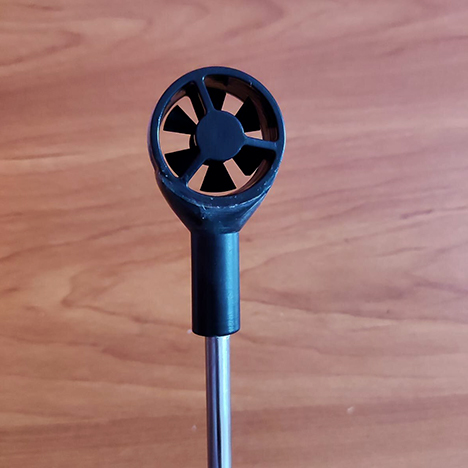The EMCON-Micro Impeller Type Water Current Meter has a broad range of applications across various fields related to water flow measurement, environmental monitoring, and hydrodynamic research. Key applications include:
Hydrological Studies: The meter is extensively used in hydrological research to measure and analyze water velocity in natural water bodies like rivers, streams, and creeks. This helps in understanding flow characteristics, water distribution, and river behavior, which is essential for water resource management, flood forecasting, and drought prediction.
Fluid Dynamics Research: Researchers studying fluid dynamics rely on the precise velocity measurements provided by the EMCON-Micro Impeller Meter. It is used to model and simulate the behavior of water in various conditions, such as turbulence, flow resistance, and velocity profiles, aiding in the development of more accurate fluid flow models.
Environmental Monitoring: The meter plays a crucial role in monitoring the health of aquatic ecosystems. By measuring flow velocity, it helps researchers assess the effects of water movement on sediment transport, erosion, water quality, and aquatic habitats. This is vital for environmental conservation efforts and assessing the impacts of human activities on natural water bodies.
Water Management Systems: For engineers and water management professionals, the meter provides critical data for designing and optimizing water management systems, including irrigation systems, dam operations, flood control structures, and stormwater systems. Accurate flow measurements are necessary for ensuring the efficiency and safety of these systems.
Modeling and Simulation in Controlled Environments: The EMCON-Micro Impeller Meter is commonly used in model tanks and laboratory settings for scaled-down hydrodynamic modeling. These setups simulate real-world water flow conditions, allowing for the study of water behavior in controlled environments, which is useful for designing infrastructure such as bridges, dams, and water treatment plants.
Erosion and Sediment Transport Studies: The device is instrumental in studying sediment transport and riverbed erosion. By providing real-time velocity data, it helps researchers understand how water velocity affects sediment movement, which is essential for managing sedimentation in reservoirs, navigable waterways, and agricultural fields.
Flood Risk Assessment and Management: Accurate velocity measurements are vital for flood prediction models and risk assessments. The meter helps in monitoring river currents and water levels, allowing for early warnings and effective flood management strategies, especially in areas prone to flooding.
Coastal and Marine Research: The meter is also used in coastal environments to measure water velocity near river mouths or estuaries. Understanding the interaction between freshwater flows and tidal currents is crucial for studying water quality, nutrient transport, and the health of coastal ecosystems.
Aquatic Habitat and Fishery Management: In fisheries management, understanding water velocity is important for assessing habitats for fish and other aquatic organisms. The data collected helps in managing the flow conditions needed to support healthy aquatic ecosystems and ensuring optimal conditions for fish migration and breeding.
Infrastructure Design and Safety: The meter is used in civil engineering for the design and safety of infrastructure that interacts with water bodies, such as bridges, dams, and levees. By understanding how water flows in these environments, engineers can ensure that structures are designed to withstand varying flow conditions and minimize the risk of erosion or failure.
Navigation and Shipping: In navigable waterways, precise flow measurements are essential for ensuring safe and efficient shipping routes. The EMCON-Micro Impeller Meter helps monitor currents that affect vessel speed, safety, and fuel efficiency, particularly in rivers, harbors, and canals.
These applications highlight the versatility of the EMCON-Micro Impeller Type Water Current Meter in a wide range of scientific, engineering, and environmental fields, providing accurate and real-time water velocity data that is crucial for understanding water movement and its impact on ecosystems and infrastructure.
